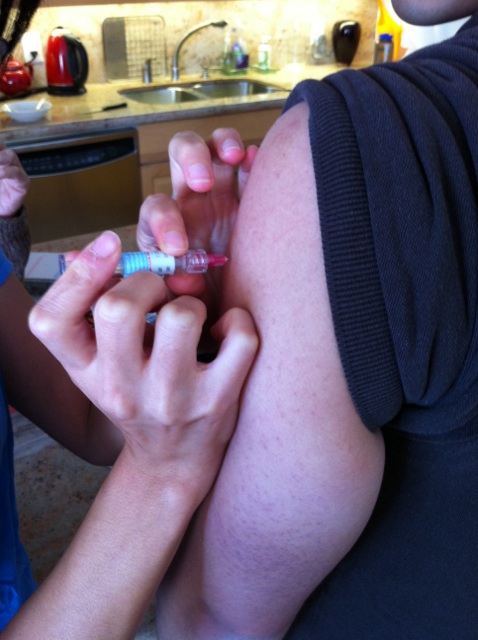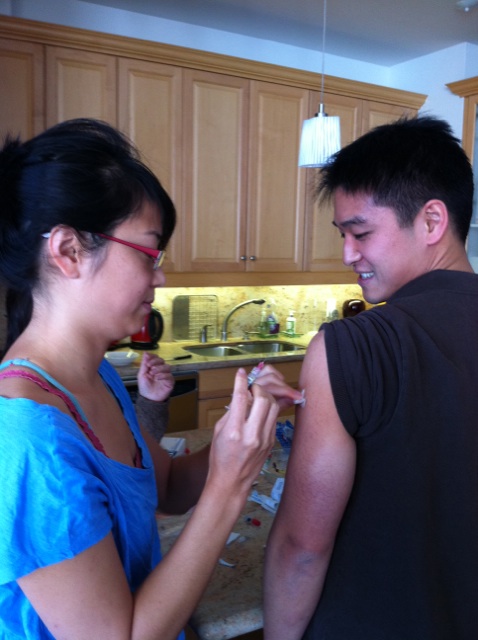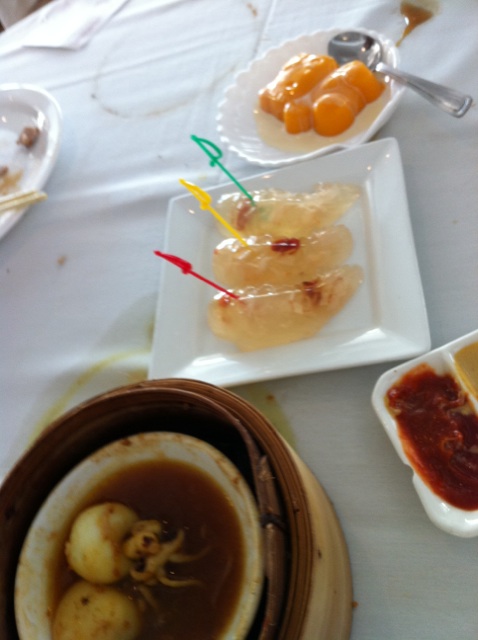I met up with a couple friends from undergrad two nights ago. One of them, BM, is in Physio school. It was pretty cool to compare how our respective programs have been similar or different. Mostly different so far.
She said that she was surprised how much writing is involved in PT school. She had to write 3 papers so far. I forget what the first paper was on, the second was on an experience with someone with a disability (this paper was done in partnership with a student from Osteopathic school), and a third paper on a topic of her choosing, which she wrote on Physio clinics under the public payment system.
It was really cool, how right off the bat her training is integrated into the training of other health professionals. She recently finished a rotation in the neuro oncology ward, where she sat in on case reviews with med students. She also completed some assignments where cases were reviewed by a team of students: a nursing student, a physiotherapy student, a medical student, and so on. Each student reviewed the case and discussed their treatment plans from their discipline’s perspectives. It must have been so interesting to see how each member approaches a patient, and to see how the treatment plans can compliment (or maybe even contradict) each other.
I told her how my mom recently hurt her shoulder when she fell on her elbow, and has a partial tear of rotator cuff muscles. The orthopedic surgeon can’t do anything for her, so she was told to just let it heal on it’s own. She had lost quite a bit of her arm’s range of motion (i.e. couldn’t put on her seat belt without help or a lot of pain) so she booked an appointment with a physiotherapist and has been really happy with the help she has had from there. My friend BM was happy to hear this. She said, “See? We aren’t just support staff!” — I got the feeling this was more so directed at the world (Them!) than me.
One of the assignments BM had was for a group of the physiotherapy students to find out the different roles of various members of the health care team. Her group did pretty well but in the end couldn’t figure out the difference in role between a licensed nurse practitioner and a registered nurse. Her tutor asked them, “If you don’t know the difference between a licensed nurse practitioner and a registered nurse, how do you expect them to know the difference between a physiotherapist and an occupational therapist?”. More than support staff for sure, but still trained to be a part of a team. Definitely more than my training has been so far. For sure these discussions haven’t come up in medical school, and yet I’m sure doctors will always be a part of the health professional team. From my perspective, it’s too bad.
I thought back to when I learned about some kind of wrist-related pathology in first year Anatomy. Was it carpal tunnel? I don’t remember. But I remember being told that the treatment for it was surgery. Perhaps to cut open the flexor retinaculum, if it was carpal tunnel. Frond was sitting beside me, and during break after lecture he told me he was so surprised that we were being told the treatment was surgery, rather than the much less invasive manual therapies he had learned and treated clients with in his previous life as a body worker.
Maybe it’s just my med school. After all BM goes to a university that has made it’s name on “innovative” (unconventional) teaching styles. It seems to work. But regardless, more interdisciplinary training from the start of med school is something every med student (and patient!) will benefit from.






Recent Comments